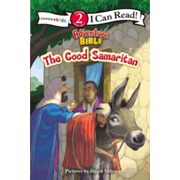
Reassuring Reluctant Readers
Do you have a reluctant reader? When older children hesitate or refuse to read, there could be a learning delay. But usually, it’s because they don’t think they read well, or they’re not interested in the subject matter. When that’s the case, parents can motivate and reassure their reluctant readers in several ways.
When I was a child, I was far more interested in looking at a book’s illustrations than reading its words. Fortunately, I had some wonderful encouragers along the way to guide me to a greater appreciation of the text.
Today, more resources and numerous ideas are available to encourage reluctant readers.
As a homeschool mom, I have been challenged with my own reluctant reader. Even though I taught in the public school system for nine years prior to homeschooling, I still questioned my abilities to teach him.
Some days we progressed, other days we regressed.
Nonetheless, now, he’s a teen who’s reading well. The following suggestions are things that worked for us in addition to activities t
Talk with Others
Even though every child is unique, it helps to talk with others. Ask other homeschool parents and educators what books and curriculum they have found helpful with reluctant readers. I’m not going to mention curriculums here because there are so many!
If you have a special needs child, there are helpful websites and blogs written by people who understand and offer encouragement and resources.
Just a small sampling of those are:
HSLDA: Struggling Learners – What Help is Available?
Some of the reading book series we found helpful were for our beginning readers:
 |
My First Bob Books: Compound Words |
 |
The Adventure Bible: The Good Samaritan, I Can Read! |
 |
Step Into Reading: The Titanic, Lost…And Found, Step 4 |
Ask Your Children Questions
To reduce a reluctance to read, we should ask our children a few questions.
“Why do you not like to read?”
“Do you like listening to others read out loud? What kinds of books do you like?”
“Would you read this book?” Why or why not?” (cover design, word amount or complexity)
“What do you see on the cover?” (make a connection) “What do you think this book might be about?”
“After reading this passage, what surprised you?” “Did anything confuse you?” “Was there something you found meaningful?”
“What can I do to encourage you to read this book?”
Reassure With a Team Spirit
Make sure your children know you are on the same team. You’re their greatest cheerleader. Whatever difficulties there are, you’re there to walk through them with them. They’re not alone in the struggle.
Things will get better but it will take work. Remind them you’re here to help make the learning as easy and as fun as possible.

Image by © Royalty-Free/Corbis
Meet Reluctant Readers Halfway
Ignite a desire to read by meeting reluctant readers halfway.
- Read aloud to them while they watch you point to the words.
- Take turns reading the text with them.
- Consider a different approach. If readers stumble on a word, ask them to spell it out loud to you and simply tell them what the word is without asking them to sound out each letter. That distracts from the story. The child is getting in a little spelling practice, he sees it’s not a stressor, and after enough times of asking, he’ll eventually remember the word. You can always add it to his spelling list later. Just don’t get hung up on stopping the flow of a story to have him sound out a word.
- Have colorful, illustrated dictionaries and thesauruses on hand. We like the ones by Usbourne Books.
- Consider allowing them to ask an internet “intelligent” device how to pronounce – – – – (spell out the word). Again, this is getting in spelling practice!
- Don’t compare reluctant readers to their peers. Assure them they are right where they need to be—where they’ll meet success. Slowing down to savor something is a good thing. If we rush through just to get to the end, we may miss something that will help us or miss something fascinating.
- Make a deal. “If you read this, you won’t have to write down the answers to the questions at the end. You can answer them out loud.”
- Refrain from testing on reading for a while. Just encourage a love, or at least an interest, for reading.
- As the parent, be okay with books you may not feel is grade-level appropriate. I love reading picture books. To myself! If your children love illustrations and color, let them choose picture books, even if they’re older kids. Reluctant readers have also found great success with graphic novels, such as Diary of a Wimpy Kid, and graphic Bibles. Also, consider joke books and fact books like The Guinness Book of World Records.
- Accept and encourage all reading–road signs, restaurant menus, cereal boxes, cookbooks, newspaper comics, jar labels, bulletins, hymnals, programs, and even the junk mail.
- Perhaps your children have a favorite animated show where the characters’ voices drive you nuts. Tell them they can watch it, but only with the captions on!
Make Reading Interesting & Fun
One of the best things we can do to encourage reluctant readers is reassuring them they can choose books about things they like. They will enjoy it more if the topic is interesting and relevant to their lives.
Also, shake things up a bit by creating some fun!
Here are a few suggestions for parents and students.
- Tap into their artistic interests by asking them to create a poster of facts about a character from the book.
- Use different voices and facial expressions when reading aloud.
- Watch book trailers online to entice readers. Ask them to create a book trailer after reading a book.
- Introduce a book to a child by reading to them a portion of a cliff-hanger scene. If they want to know what happens, they’ll have to read the book.
- Watch a movie together, then read the corresponding book. Discuss the similarities and differences between the movie and the book.
- Remember the library summer reading programs. Perhaps design your own incentive reading program.
- Subscribe to children’s magazines such as Clubhouse Jr., Brio, or the news leaflets by God’s World News Group.
- Write and illustrate your own book. Make big books or buy
the blank , hardcover books. - Meet and talk with a book author.
- Organize a reading day with your local co-op. Host a parade where everyone dresses up like a favorite book character.
- Host a Bookworm Party or introduce a book with food.

- Introduce your students to reading via the style of reader’s theatre.
- Allow the techies to read on different electronic devices.
- Allow reading in a dry bathtub, in a tent, or in a tree.
- Encourage students to read to a sibling, a resident of an assisted living center, or even to a pet.
- Extend bedtime by twenty minutes if they use the time reading.
- Read in the dark with a flashlight, by a candle, or by a campfire.
- Ask students to rap a poem.
- Play games that require reading: Monopoly, Life, Pictionary, Scrabble, Cataan, and many more.
- Of course, money usually talks. Are you willing to pay cold cash to fire up your little reader?
- Create a “game show” where kids read questions about something they’ve read and try to answer them. Of course, there must be prizes! The sillier the prizes, the longer they’ll play to see what’s next.
We can reassure our reluctant readers with many encouraging conversations and by creating a fun, learning environment.
Ultimately, though, the children will have to decide what motivates them to learn and to find true enjoyment in reading.
What about you? Have you had experience with a reluctant reader? Do you have anything you’d like to share that you’ve found helpful?
This is the final post in my 3-part series of “Helping Struggling Learners.”
We’ve talked about Encouraging Introverted Children, Inspiring Wavering Writers, and Reassuring Reluctant Readers.
It’s been a pleasure participating in the Homeschool Review Crew’s Homeschool Blog Hop this week!
I hope you’ll check out all the other fantastic blogs. You can find the whole list at :
Just a sampling of the many bloggers you’ll find there are:
- Annette @ A Net in Time – Homeschooling.
- Monique D. @ Early Learning Mom – Homeschooling With Autism
- Wendy @ Life on Chickadee Lane – 5 Days of Nature Study
- Jacquelin @ A Stable Beginning – Homeschooling my final 4
- Christine @ Life’s Special Necessities – Yes! You Can Homeschool Your Special Needs Child




